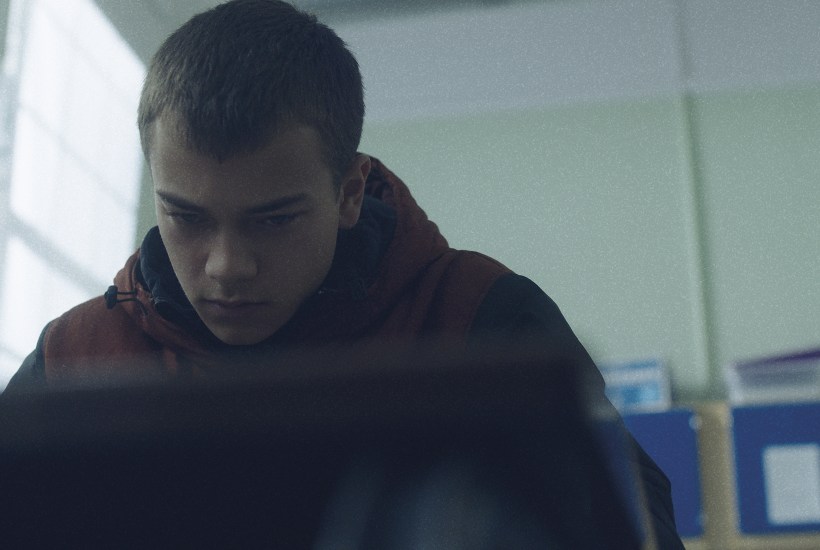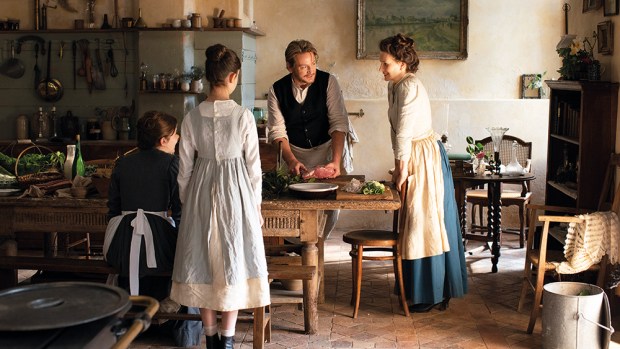County Lines is the kind of social realism that the British do so well, if not too well. In other words, a hard watch. In fact, at times it’s so unbearable you might find yourself pressing pause because you’ve suddenly remembered the fridge needs a clean, say. Or the hall: couldn’t it do with a tidy-up? But this tale of a young boy caught up in transporting drugs has to be tough. And there is sympathy, tenderness and hope, too. As for the kid, who is a sort of modern-day Billy from Kes, you will certainly take him to heart.
The film is written and directed by Henry Blake, a one-time actor who was a youth worker in London for 11 years. So he knows of what he speaks and what he is speaking of here is the horribly real problem of teens and children (some as young as seven) who are recruited to shift drugs from urban areas to more rural ones. The term ‘county lines’ refers to the phone lines dedicated to this activity and the kids who are recruited are usually among the most vulnerable, as they are the easiest to groom, manipulate and exploit. (‘It’s always,’ Blake has said, ‘the child walking home from school by themselves — that’s the ones they want.’)
Our main character is 14-year-old Tyler (Conrad Khan) who attends a PRU (Pupil Referral Unit) for kids excluded from mainstream education, which is where Blake himself worked. Tyler is bullied at the PRU and withdrawn and always walks home by himself. His mother, Toni (Ashley Madekwe, who is terrific), is struggling and he’s the one who looks after his little sister. There is no father on the scene.
Then he meets Simon (a sinister Harris Dickinson) who drives a nice car and wears a nice watch and buys Tyler trainers and chicken and commiserates with Tyler about what it is to be ‘the man of the house’. Walk away, Tyler, you are praying. Be a good boy and step away from the trainers and the chicken. But of course he does not.
The narrative trajectory is familiar if not inevitable. Tyler’s first trip to a bleak seaside resort reveals the true hell of the situation he now finds himself in. Crack houses, addicts, Vaselined heroin packages, the constant threat of violence. It’s all so horrible and wretched that now the fridge is done, and the hall, doesn’t the microwave need a wipe around? The wheelie bins: time for a good bleaching? But you will keep coming back, because you have been made to care.
Khan is astonishing as Tyler, bringing not only psychological depth, but also a sense of the boy’s aching, lonely depths. And also a sense of how victims can become perpetrators — violence begets violence; I tidied the shoe rack for that one — and then shift back again. The film is fascinating in that respect. As for Toni, my fear was that, as the mother, she’d get blamed for everything, as per, but Blake treats her character with great compassion and humanity, and her dynamic with Tyler, which eventually becomes central, proves uplifting. So it’s not all depressing.
The film is well directed, often impressionistically, and the dialogue is nicely sparse yet always profoundly telling. (‘Why do you do it?’ Toni asks Simon. ‘It’s easy,’ he shrugs.) And while the trajectory is familiar, there is also narrative propulsion. Will Tyler survive? Can Tyler exit this world? As is put to him at one point: every business has to decide what constitutes an ‘acceptable loss’ and ‘Do you know what the acceptable loss is in your business, Tyler? You.’
It is a hard watch, but ultimately a rewarding one, and it lifts the lid on a frighteningly real social problem. Plus, you will get a very clean house out of it by the end.
Got something to add? Join the discussion and comment below.
Get 10 issues for just $10
Subscribe to The Spectator Australia today for the next 10 magazine issues, plus full online access, for just $10.
You might disagree with half of it, but you’ll enjoy reading all of it. Try your first month for free, then just $2 a week for the remainder of your first year.














Comments
Don't miss out
Join the conversation with other Spectator Australia readers. Subscribe to leave a comment.
SUBSCRIBEAlready a subscriber? Log in